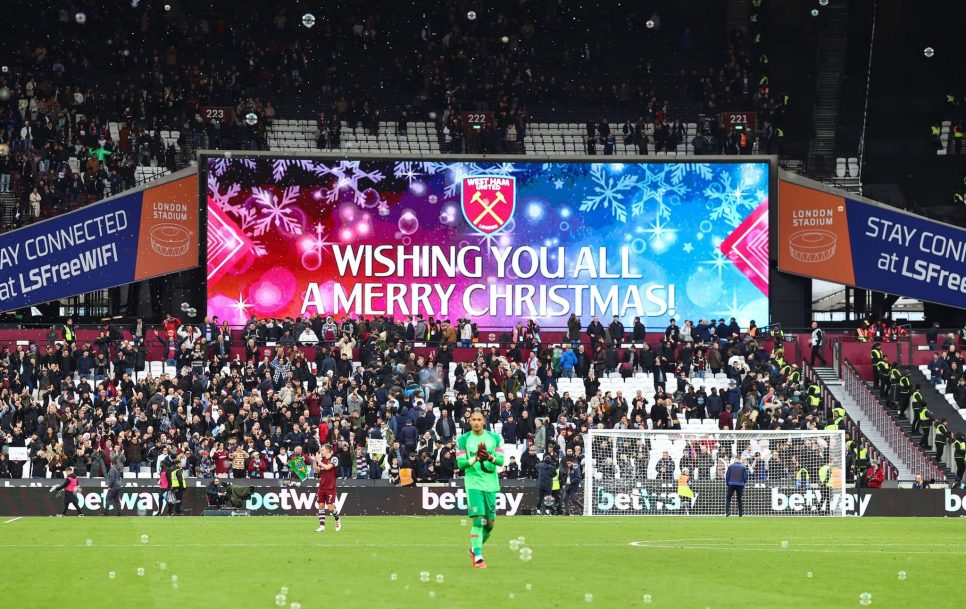Merry Christmas! Except if you play in the Premier League
While in other top leagues, the winter break is very normal and, let’s be honest, a welcome occurrence from the players’ point of view, this is not the case in the English Premier League. They still play on, come what may, even when the calendar shows December 26th.
In order to understand why the English behave this way, you need to understand history.
Although (modern) football is 161 years old, in fact, various versions of the game of football have been practiced much longer. A football-like game was first mentioned in China, in the records of the Han Dynasty as 2000 years ago.
Similarly, in Japan, for example, there are notes made in the 7th century about kenatt, a game that represented a “king” or, to put it simply, dribbling. We have already written about how football was “embraced” by the British at OlyBet.TV, but that’s not really important here.
The holiday season was the only free period
It is more important to understand that the holidays and the game of football – whether it is called kenatt, harpastum or football – have always been thick as thieves. Because this is a period when people are not at work, but together: having fun.
100+ years ago, Christmas was the only time when it was possible to play and enjoy football together. And to do so more than just during a lunch break from the mining work.
“Football was played on Christmas Eve in the [Queen] Victorian era (1837-1901) because it was a day off and the working class thus developed a tradition,” historian Martin Johnes has told the BBC.
Football was also played on December 26, which the English call Boxing Day, for the same reason. “For many working-class people, it was the only time of year they could watch football, so it made sense to have two games in three days,” Johnes continued.
Then money started to play a role
And once such a tradition had already emerged, it naturally only intensified with the rise of professional football. Because a day off meant more people, which in turn meant more money. But at one point, the same increase in living standards became fatal for Christmas Eve football.
While in the post-war years, people didn’t have much to do, and entertaining football offered a way to take their worries elsewhere, over time people had opportunities. Opportunities to buy gifts, set a (more lavish) table and decorate a Christmas tree.
In short, the holidays truly became holidays spent with family. And since the games on December 24 no longer paid off in terms of viewership, this tradition was swept into the trash in England in 1965.
Inconvenient, but still… money
But the tradition of December 26th, or Boxing Day, has remained. Why? Because by then all the Christmas roasts have been eaten and the presents have been distributed and people have nothing else to do but sit on the couch with bloated bellies and watch football!
In short, the December 26th games exist in the Premier League purely for the money, and although players occasionally show dissatisfaction, they generally understand that the pounds that hit their bank account on payday outweighs this dissatisfaction.
Premier League Matchday on 26th of December:
- 14:30 Manchester City – Everton
- 17:00 Bournemouth – Crystal Palace
- 17:00 Chelsea – Fulham
- 17:00 Newcastle – Aston Villa
- 17:00 Nottingham Forest – Tottenham Hotspur
- 17:00 Southampton – West Ham United
- 19:30 Wolverhampton Wanderers – Manchester United
- 22:00 Liverpool – Leicester
Talking about playing on December 26 – how do players see it? “You just get used to it,” says Jamie Carragher, who played for Liverpool for 17 seasons and played in 508 Premier League games.
It is much more pleasant to play at home over the Christmas holidays. “If it’s a home game, you go to the stadium as early as possible, around 9-10, and you can get home in the evening. But if you play away, you have to spend Christmas Eve training because you have to travel the next day, so you often spend Christmas Day in a hotel,” he says.
No celebratory drink
According to Carragher, his friends and family generally didn’t understand why the footballers had to play during the holidays. “They were just like, ‘Look, have a drink,’ to which I had to shake my head and say, ‘I can’t, I’ve got a game!'” Of course, one beer the day before wouldn’t have made much difference, but I never drank anything anyway.”
Shay Given, the former Irish goalkeeper and goalkeeper for Newcastle United and Manchester City, also kept a sober line on Christmas Day. “I didn’t drink. While the others were downing beers, I was drinking water. I also put less food on my plate than the others,” he recalls of the usual holidays.
But as always, there are those who enjoy playing on Christmas Day. “It’s strange, but when you drive to training on Christmas morning, there’s no one on the roads – it’s wonderful.
And when you do see people, they are all happy, polite and wave at you… even the Spurs fans,” said Ian Wright, former striker of Tottenham’s arch-rivals Arsenal.
This idyllic scene applies to Christmas training itself as well, because the players all come with their families. But on match day, everything was exactly the same as the other 364 days of the year, because England is a country of fierce football!
This year, four Premier League clubs will be exempt from playing on Boxing Day: Brighton, Brentford, Arsenal and Ipswich, who will play their Round of 18 matches a day later, on December 27. However, this also comes at a price, as Brentford and Arsenal will have to take to the field on January 1. Happy New Year… or something along those lines.







